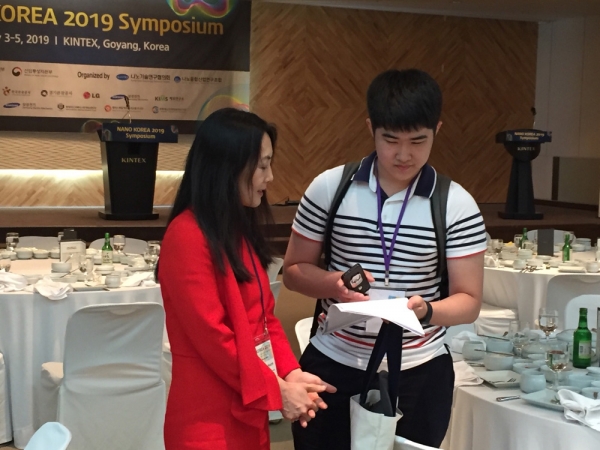
Given our current energy and environmental crises, the pursuit of energy efficiency has never been more important. In particular, research into efficient energy storage has been essential to the dual purposes of delivering the harvested energy to the user with minimal waste and reducing environmental damage. The development of Lithium-ion batteries was widely celebrated because of their ability to store a large amount of energy in a relatively small space, hence their ubiquity in electronic products.
However, Lithium-ion batteries came under scrutiny after several safety concerns, and, when Samsung was forced to recall (and later discontinue) their brand-new Galaxy Note 7 after some of their phones exploded, the scrutiny intensified. Although the seeming correlation between this and the Lithium-ion batteries themselves are problematic, it is nevertheless acknowledged that Lithium-ion batteries have room for improvement. Recently, Professor Yang Shao-Horn, a professor from the Massachusetts Institute of Technology (MIT), gave a plenary speech at Nano Korea 2019 called “Energy Storage for Decarbonization: Current and Future” to present her research findings on Lithium-ion batteries for a safer, more efficient and commercially friendly product. Currently at the forefront of energy storage research, she is renowned for her dedication to both theoretical and experimental science and isn’t afraid to “go into the dark.” Visit https://dmse.mit.edu/people/yang-shao-horn to see her profile, publications, and other news.
Q: You said in an interview in 2013 that you initially wanted to become a metallurgist like your father but you ended up being adventurous and chose to study Lithium-ion batteries. What made Lithium-ion batteries more appealing than other fields?
A: To me, back then, it was something different. Maybe a sense of adventure? To get into a field that I know nothing about, the sense of unknown, pursuing the unknown; I think that’s what we in research do, right? We are at the frontiers of knowledge, so we’re really pushing forward into the unknown. Be willing to take risks, not being afraid of going to the dark.
Q: Your research seems to be a convergence of theoretical and experimental areas of material science, chemistry and physics, and I saw in a previous interview that you “continually reach out to a bigger pool of people.” Collaboration, in my opinion, is what makes science so fun. However, sometimes I think it can get out of control – by that, I mean losing focus after a while. What’s the process with which you decide who to collaborate with?
A: That’s a great question. I think to do creative research, we need to have intellectual diversity. We need to have people coming from very different backgrounds to think differently. But then of course, if one collaborates without a theme, then one may not be able to develop a productive collaboration. So typically what we would do is … I’ll give you an example. If recently we’ve been learning and playing with phonons – and maybe this may be a field that, 10 years ago, I knew nothing about – and collaborating with physicists – where people know much more about phonons, and then we use the phonons in a very different area, which we relate phonons to influence ion mobility – how ions move, right? So I think that it’s really how you take a concept from a different field and use it to solve a problem of your own topic.
Q: You mentioned in your presentation about how your research can help the ongoing environmental crisis. Do you work with government officials to see how your work can benefit current energy situations? If not, how essential do you think government backing is for your research?
A: Right, I think as a scientist or as a citizen it’s very important to engage with the government to voice our concerns and potentially shape the vision for energy for our society. So it’s really our obligation to engage.
Q. In the research concerning solar cells as well as energy storage, how do you see the field shifting in, say, 10 years?
A: I think in the next 10 years, you’re going to see the cost of electrons from solar & wind [energies] drop further; there are various techno-economical analyses that project zero cost electrons from these technologies. So I think this is something we can think about… how can we develop newer technologies and replace the current silicon which is also energy intense; we can focus on developing energy storage technologies so that we can use the electrons on demand.
Q: Can you say a few words about college and what students should strive for?
A: Right. I think it’s important we go to college. On one hand we go to college because we are innately, intellectually, curious about a topic. And once you’re engaging in the topic you can say that you want to do something that could benefit society. But I think first of all, one needs to find the topic that is intellectually stimulating and interesting to you, perhaps imagining how one may make an impact; of course both are very important, going forward.
Written by Spencer Lee, Seoul Foreign School (SFS)


